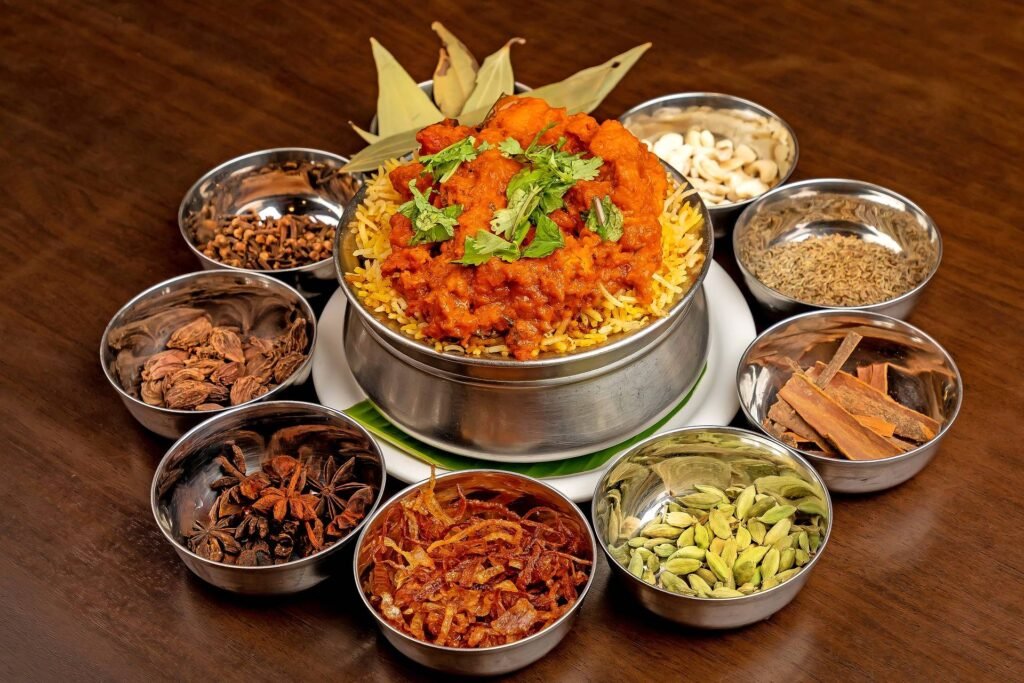Pregnancy is a time of joy and anticipation, but it also brings a host of new concerns, especially when it comes to diet. The foods that are normally part of your everyday life can suddenly become questionable. For those who enjoy Indian cuisine, understanding which traditional dishes might be harmful during pregnancy is crucial. From beloved spices to popular street foods, what you eat can significantly impact your pregnancy journey. This article dives into the Indian foods that should be avoided during this critical time, ensuring a safe and healthy experience.
Spicy and Fried Foods
Spicy and fried foods, staples in Indian cuisine, can cause discomfort during pregnancy, leading to heartburn and indigestion. These foods, rich in oil and spices, can exacerbate the common digestive issues that pregnant women experience due to hormonal changes. It’s advisable to opt for milder versions of these dishes or reduce their intake to maintain digestive comfort.
Papaya and Pineapple
Unripe or semi-ripe papaya contains latex, a substance that can induce uterine contractions and potentially lead to complications such as preterm labor or miscarriage. Similarly, pineapple contains bromelain, an enzyme that can soften the cervix and may trigger premature labor. While ripe papaya and pineapple are generally considered safe in moderation, it’s recommended to avoid them to prevent any risk during pregnancy.
Certain Herbs and Spices
Certain herbs and spices commonly used in Indian cooking can have adverse effects during pregnancy. Asafoetida (hing), fenugreek seeds (methi dana), and carom seeds (ajwain) are examples of ingredients that can stimulate the uterus and should be consumed with caution or avoided entirely during pregnancy. These spices, though beneficial in other contexts, can pose risks in the delicate state of pregnancy.
Raw and Under-Cooked Eggs
Raw or undercooked eggs pose a risk of salmonella infection, which can be particularly dangerous during pregnancy. Indian dishes like homemade mayonnaise or certain desserts that include raw eggs should be avoided. Instead, ensure that eggs are thoroughly cooked to eliminate any potential health risks.
Certain Types of Fish
While fish is a good source of omega-3 fatty acids, important for fetal brain development, certain types contain high levels of mercury. Fish like mackerel, shark, and swordfish should be avoided due to their mercury content, which can harm the developing nervous system of the fetus. Safer options include salmon and sardines, consumed in moderation.
Unpasteurized Dairy Products
Dairy products are an essential source of calcium and protein, but unpasteurized dairy can carry harmful bacteria like listeria, leading to serious pregnancy complications. Pregnant women should opt for pasteurized dairy products to ensure safety, avoiding items like fresh, unpasteurized paneer or other dairy products made from raw milk.
Street Food
Street food, a beloved aspect of Indian cuisine, often comes with the risk of contamination due to less stringent hygiene practices. Pregnant women should avoid street food to reduce the risk of foodborne illnesses, which can be harmful during pregnancy. Instead, preparing these foods at home with proper hygiene can be a safer alternative.
Caffeine and Herbal Teas
Excessive caffeine intake during pregnancy has been linked to low birth weight and other complications. Pregnant women should limit their caffeine consumption, including coffee, tea, and certain soft drinks. Additionally, some herbal teas, like those containing licorice root, should be avoided due to their potential to cause uterine contractions.
Pickles and Processed Foods
Pickles, while a flavorful addition to meals, are high in salt, which can lead to increased blood pressure and water retention—conditions that are best avoided during pregnancy. Similarly, processed foods, which often contain preservatives and artificial ingredients, should be minimized in a pregnancy diet.
Conclusion: Making Informed Food Choices
During pregnancy, making informed dietary choices is crucial for the health of both mother and baby. While many Indian foods offer nutritional benefits, it’s important to be mindful of those that may pose risks. By avoiding certain foods and opting for safer alternatives, pregnant women can ensure a healthier, more comfortable pregnancy experience.

